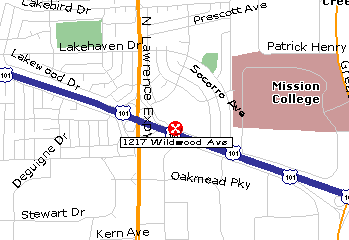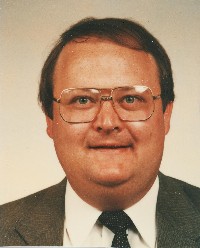|
|
|
 | ||
|
| ||
 Wednesday, March 8, 2006
Wednesday, March 8, 2006
| $25 -- Register & prepay for dinner in one step from your PayPal account or Credit/Debit Card! |
Ramada Inn
PLEASE RESERVE IN ADVANCE --
"RoHS: Long-Term Perspective and Legal and Trade Challenges"
The much-heralded WEEE deadlines arrived - and passed -- with no fanfares, just another date on the calendar, and the July 1 2006 RoHS deadline will be just the same.
The difference though, as we all know, is that these dates transitioned any manufacturer shipping products into Europe from the crystal clear waters of margin-based commerce into the murkier waters of environmental compliance.
This talk looks back on the RoHS legislation, looks at what is good about it (the environmental protection) and what is bad about it (the way it has been implemented).
It considers how such legislation can be handled by the industry going forwards, particularly in view of the next impending round of legislation which will be directly impacting the product design in terms of its ease of recycling.
The talk also considers how manufacturers need to address the "worth" of compliance data from their vendors, the route by which it arrived, and the guarantees which came with it. This part of the talk will take the form of a series of "what if" scenarios should a company be challenged on its product compliance, and hopefully will throw some light onto the correct way to approach data collection and audit procedures.
 Thomas Ellison
has worked in electronics manufacturing for the last 17 years. His experience includes research and development work in vapor phase soldering and nitrogen inerting of reflow ovens while at Air Products and Chemicals, ASIC design management and process engineering management of a high volume surface mount assembly facility for Trimble Navigation, and SMT and fiber optic transceiver engineering for Finisar Corporation. More recently Tom has been the lead technical engineer for Finisar's RoHS compliance efforts. He provided technical leadership for Finisar's conversion to lead-free soldering processes and is currently working on component issues, materials declarations and data management aspects of RoHS compliance. He has a B.S. in Chemistry from University of Missouri - Rolla and an M.S. in Materials Science and Engineering from Iowa State University.
Thomas Ellison
has worked in electronics manufacturing for the last 17 years. His experience includes research and development work in vapor phase soldering and nitrogen inerting of reflow ovens while at Air Products and Chemicals, ASIC design management and process engineering management of a high volume surface mount assembly facility for Trimble Navigation, and SMT and fiber optic transceiver engineering for Finisar Corporation. More recently Tom has been the lead technical engineer for Finisar's RoHS compliance efforts. He provided technical leadership for Finisar's conversion to lead-free soldering processes and is currently working on component issues, materials declarations and data management aspects of RoHS compliance. He has a B.S. in Chemistry from University of Missouri - Rolla and an M.S. in Materials Science and Engineering from Iowa State University.
John Burke founded the UK based Surface Mounted and Related Technologies (SMART) Group in 1984, and has worked in the area of advanced manufacturing for many years. He has taught at various universities on technology, including university of Dundee, University of Hull, University of Limerick and University of Cambridge. John worked on the generation of IPC 1752 as a part of the 2-18 committees, and dealt with reporting standards for hazardous materials. For many years he has been involved in the drive towards environmentally sound electronics assemblies, and has been heavily involved in trying to aid engineers caught up in the drive towards RoHS and JIG compliance. John is currently employed by Optichron Inc., a fabless semiconductor vendor based out of Fremont, as the Senior Operations Manager.
|
SCV Chapter
Home Page |
How to Join IEEE |
Contact our Chapter Chair |
FF
| CPMT Society
Home Page |
IEEE Home Page |
Email
to Webmaster |
Last updated on